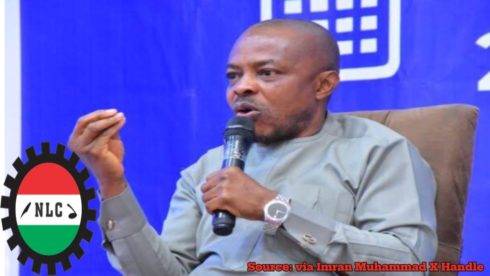The Nigerian Labour Congress (NLC) is showing signs of reducing its minimum wage demand to N500,000 as it begins the zonal public hearing on the new wage framework in various cities including Lagos, Kano, Enugu, Akwa Ibom, Adamawa, and Abuja. This reduction comes after previous discussions where the President of the Nigerian Labour Congress, Joe Ajaero, hinted at the possibility of proposing a minimum wage of up to N1 million if inflation persists.
Today’s meeting is crucial as it marks the submission of proposals by state chapters to the headquarters of the Nigerian Labour Congress. The decision to advocate for a sum of N500,000 reflects a careful consideration of economic factors and the prevailing conditions facing Nigerian workers. As the public hearing unfolds, the Nigerian Labour Congress aims to gather feedback from various stakeholders to ensure that the new minimum wage meets the expectations of workers while also being sustainable within the current economic landscape.
Zonal Public Hearing Aims to Gather Diverse Perspectives
The zonal public hearing on the proposed new minimum wage is set to gather input from a wide range of stakeholders including organized labor, state governors, government ministers, civil society organizations, and the private sector. This inclusive approach underscores the importance of considering diverse perspectives in formulating a wage policy that addresses the needs of all stakeholders.
Scheduled to take place across all six geographical zones, these hearings will provide a platform for stakeholders to express their views and concerns regarding the proposed minimum wage. By engaging with a broad spectrum of voices, the Nigerian Labour Congress aims to ensure that the final decision reflects the realities faced by workers across different sectors and regions of the country.
Economic Realities Shape Wage Policy Discussions
The decision to reduce the minimum wage demand to N500,000 reflects a recognition of the economic challenges facing Nigeria. With inflationary pressures and other economic uncertainties, stakeholders understand the need for a balanced approach to wage policy that considers both the interests of workers and the broader economic context.
As discussions unfold during the zonal public hearings, participants will grapple with questions of affordability, sustainability, and fairness. Finding the right balance between these competing priorities will require careful deliberation and collaboration among stakeholders. Ultimately, the goal is to establish a minimum wage that provides workers with a decent standard of living while also supporting economic growth and stability.
The President Of The Nigerian Labour Congress President Joe Ajaero to Lead Meeting in Yola
The upcoming meeting in Yola, the capital of Adamawa State, will be presided over by Joe Ajaero, the President of the Nigerian Labour Congress. Ajaero’s leadership underscores the significance of this gathering as stakeholders come together to discuss the future of wage policy in Nigeria.
As a seasoned labor leader, Ajaero brings a wealth of experience and expertise to the table. His leadership will be instrumental in guiding discussions and ensuring that all voices are heard during the proceedings. With the stakes high and expectations mounting, Ajaero’s leadership will be critical in navigating the complexities of wage policy negotiations.
Minister Wale Edun to Oversee South-West Hearing in Lagos
In the South-West, the public hearing in Lagos will be overseen by Wale Edun, the Minister of Finance and Coordinating Minister for the Economy. Edun’s involvement highlights the government’s commitment to engaging with stakeholders on issues related to wage policy and economic development.
As a key figure in the government’s economic team, Edun will play a central role in shaping discussions and facilitating dialogue between different stakeholders. His presence at the hearing signals the government’s willingness to collaborate with labor and other stakeholders to find common ground on contentious issues such as the minimum wage.
Expectations High as Public Hearings Kick Off
With the start of the zonal public hearings on the proposed new minimum wage, expectations are running high among stakeholders across the country. Workers, employers, government officials, and civil society organizations are eagerly awaiting the outcome of these discussions, which will have far-reaching implications for the Nigerian economy and society as a whole.
As the hearings unfold, stakeholders will be closely monitoring developments and advocating for their interests. From Lagos to Yola, voices from all corners of the country will converge to shape the future of wage policy in Nigeria. With so much at stake, the importance of these public hearings cannot be overstated, and the outcomes will be closely watched by all concerned parties.
Table of Contents
Discover more from OGM News NG
Subscribe to get the latest posts sent to your email.














